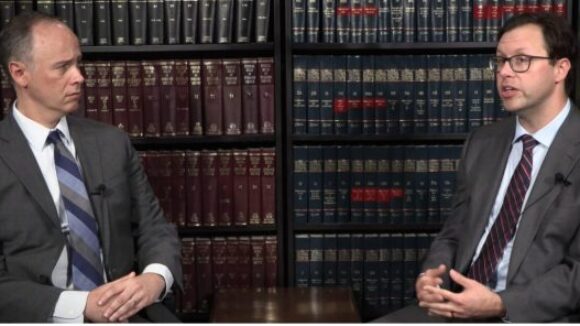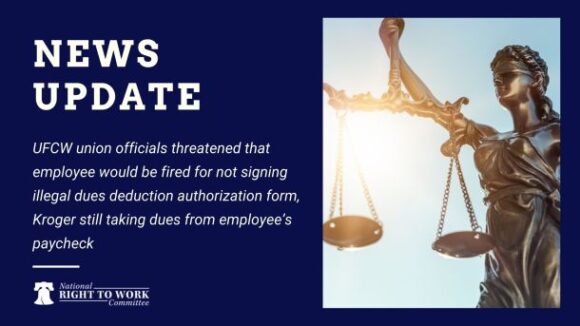Somerset, NJ, Nissan Parts Distribution Center Employees File Petition for Vote to Kick Out UAW Union
UAW union officials imposed forced-dues contracts on Nissan employees
Late last week the U.S. Court of Appeals for the Third Circuit became the second federal appeals court to rule that President Barack Obama had exceeded his constitutional authority in order to install pro-forced unionism radicals on the powerful, five-member National Labor Relations Board (NLRB).
In NLRB v. New Vista Nursing & Rehabilitation, a 2-1 majority on a panel of Third Circuit judges found that the President’s 2010 “recess” appointment to the NLRB of union lawyer Craig Becker was invalid because it was not made during an intersession recess of Congress. Mr. Obama’s putative 2012 “recess” appointments of two other union lawyers who have chosen to remain on the NLRB (Richard Griffin and Sharon Block) despite a ruling early this year by the U.S. Court of Appeals for the D.C. Circuit that their appointments were unconstitutional and invalid were not at issue in the Third Circuit case. However, the Third Circuit’s legal reasoning would invalidate those appointments as well.
The May 16 majority opinion by Third Circuit Judges D. Brooks Smith and Franklin S. Van Antwerpen sharply chastised the NLRB and, implicitly, the Obama Administration for failing to give adequate recognition to the fact that the constitutional provision empowering the President, under certain circumstances, to make recess appointments to important federal offices “preserve[s] the Senate’s advice-and-consent power by limiting” the President’s “unilateral appointment power.” (For more information, see the summary of the decision published today on the Red State blog, linked below.)
Judges Smith and Van Antwerpen went on to emphatically state that, contrary to NLRB lawyers’ implicit argument, the Recess-Appointments Clause leaves the separation of powers “between the executive and legislative branches” fully intact in order to ensure that the President, in exercising his appointment powers, remains “‘accountable to political force and the will of the people [citation omitted].'”
They concluded:
Nothing in the text of the Clause or the historical record suggests that it is intended to be a type of pressure valve for when the [P]resident cannot obtain the Senate‘s consent, whether that be because it has become dysfunctional or because it rejects a [P]resident‘s nominations.
NLRB Update: Another Court of Appeals Dismantles Union Bosses’ Radical Labor Board

UAW union officials imposed forced-dues contracts on Nissan employees

A new federal lawsuit from a National Right to Work Foundation-backed Starbucks employee, currently pending at the D.C. District Court, could upend the federal agency and result in a ruling that the current Labor Board’s structure violates the Constitution.

UFCW union officials threatened that employee would be fired for not signing illegal dues deduction authorization form, Kroger still taking dues from employee’s paycheck